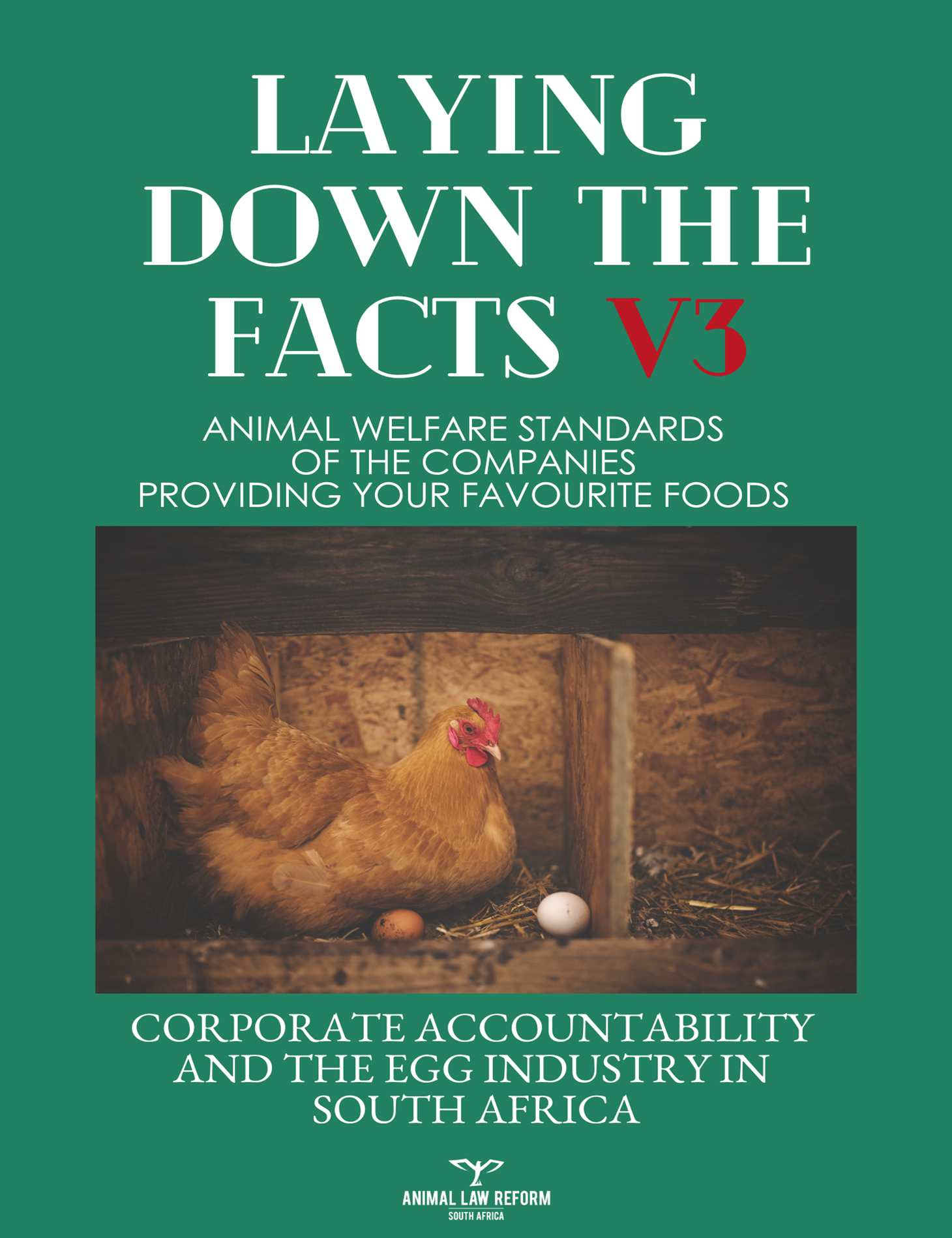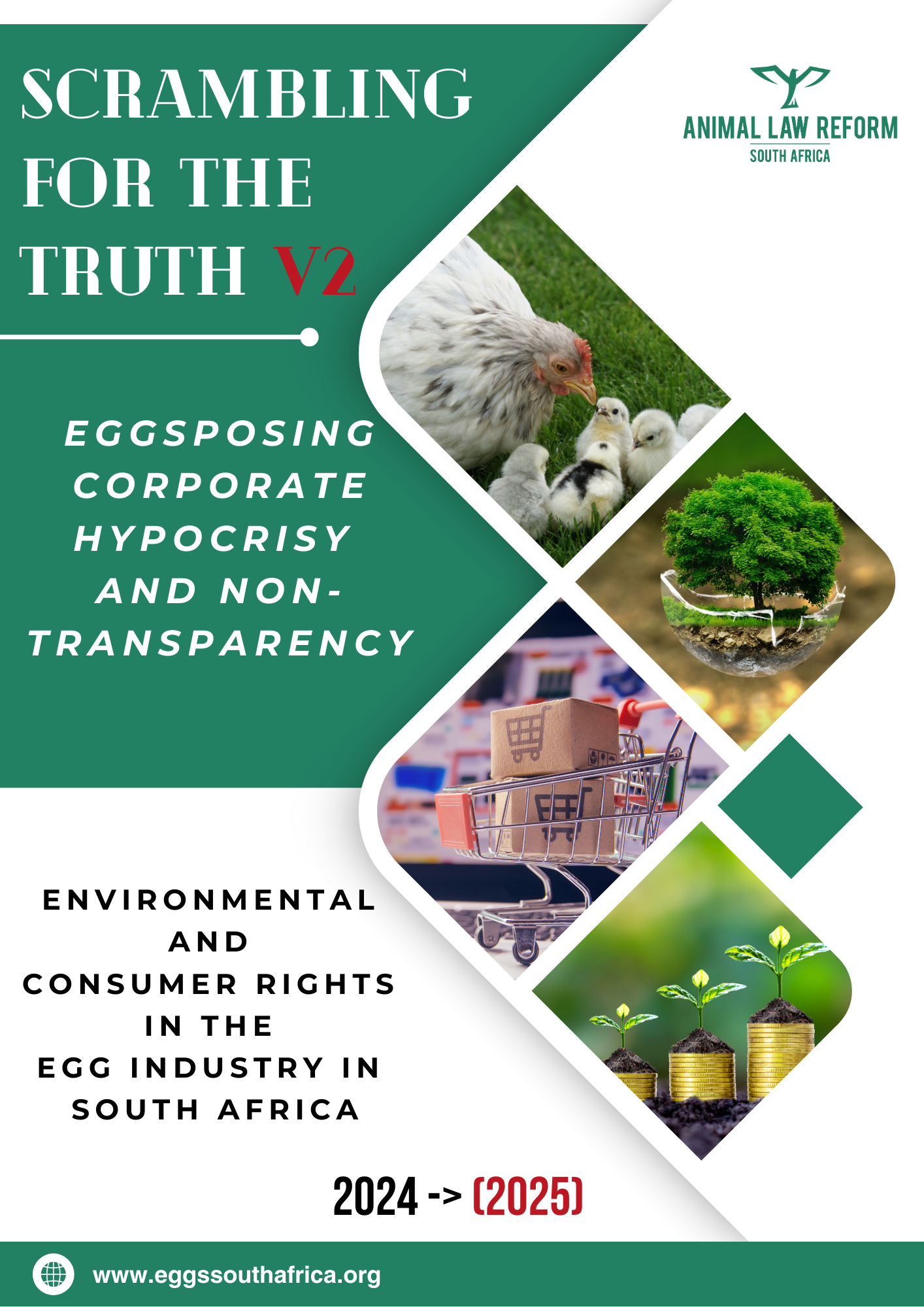In 2020, the South African Poultry Association (“SAPA”) commissioned the National Agricultural Marketing Council (“NAMC”) to undertake an economic study on layer hen housing and production systems in South Africa, including the feasibility of transitioning the egg industry from caged to cage-free systems (“NAMC Study”). Despite the significant animal welfare concerns associated with battery cages, the NAMC Study allegedly concluded that a transition to cage-free production is not economically feasible in the South African context. Although the study was reportedly finalised and signed off by the Minister of Agriculture in January 2023, it has still not been made publicly available as of September 2025. Without access to the study, consumers cannot critically engage with the findings to determine whether they were justifiable.
In May 2023, the Consumer Goods Council of South Africa (“CGCSA”) informed its members that the NAMC Study concluded South Africa is not ready for a fully cage-free egg system and advised them to reference the study when responding to lobbyist groups. CGCSA is only in possession of a summary of the NAMC Study.
From January 2023 to present, ALRSA has undertaken multiple attempts to obtain the NAMC Study through formal requests under the Promotion of Access to Information Act (“PAIA”). However, the study remains inaccessible due to refusals, non-responses, or inadequate replies from these entities and/or the Information Regulator.
Role-players’ ongoing refusal to release the study raises serious concerns about transparency, accountability, and the fair use of information in shaping public and industry policy, especially where animal welfare and consumer rights are at stake.
The PAIA is a law which enables any person to request access to records from public or private companies. This includes their internal policies and reporting not made available to the public. All entities are legally bound to respond to a PAIA request.
ALRSA has attempted to obtain a copy of the NAMC Study from:
For transparency, we have made available our correspondence with SAPA, NAMC, the CGCSA and DoA (“Industry Bodies”). These documents have been redacted in line with the Protection of Personal Information Act (“POPIA“). Redactions made by ALRSA and those made by the Industry Bodies are not distinguished. By clicking on below, you will be directed to a separate Google Folder containing documents related to ALRSA’s engagement with these industry bodies.
Below is a timeline of events in relation to requests sent to each industry body, responses received, and other action taken including complaints to the Information Regulator.





On 27 February 2024, internationally recognised as “Word NGO Day” [Non-Governmental Organisations], ALRSA in collaboration with Southern African Faith Communities’ Environment Institute (“SAFCEI“) launched a campaigned targeted at the CGCSA. This campaign stemmed from efforts by the CGCSA and its members to obstruct active engagement with NGOs on higher layer hen welfare, including undertaking cage-free egg sourcing commitments. These efforts included sending Strategic Litigation Against Public Participation Letters (“SLAPP“) to SAFCEI and reliance on the NAMC Study to reject efforts made by NGOs to engage its members on transitioning to cage-free egg production systems. Through our Eggsposure Campaign, we express concern regarding statements and actions by the CGCSA can be taken as an effort to suppress and harm civil society and NGO engagement. We believe that such statements and actions could have the following impacts: Reducing consumer awareness and rights including informed choice. Silencing and stultifying of public interest and animal welfare and protection campaigns. Promoting a lack of transparency and accountability in the egg industry and food system. Discouraging effective engagement with role players in the egg industry and Civil Society Organisations due to the protectionist stance by the CGCSA. This Campaign was launched with the publication of an open letter to the CGCSA outlining our concerns and requesting the industry body to exercise greater transparency and accountability. This open letter was supported by 23 NGOs. Below contains the link to more information about this campaign, including the timeline of this campaign and access to the open letter.
We are pleased to record that since the launch of the campaign, we have been invited by the CGCSA to present to its members, and have been invited to become a member of the CGCSA.



Corporate Accountability and the Egg Industry in South Africa
Updated in February 2025 (v3) with minor amendments
[*Note originally published in August 2023 (v1) and
amended in September 2024 (v2)]

Environmental and Consumer Rights in the Egg Industry in South Africa
Updated in February 2025 (v2) with minor amendments
[*Note originally published in September 2024 (v1)]